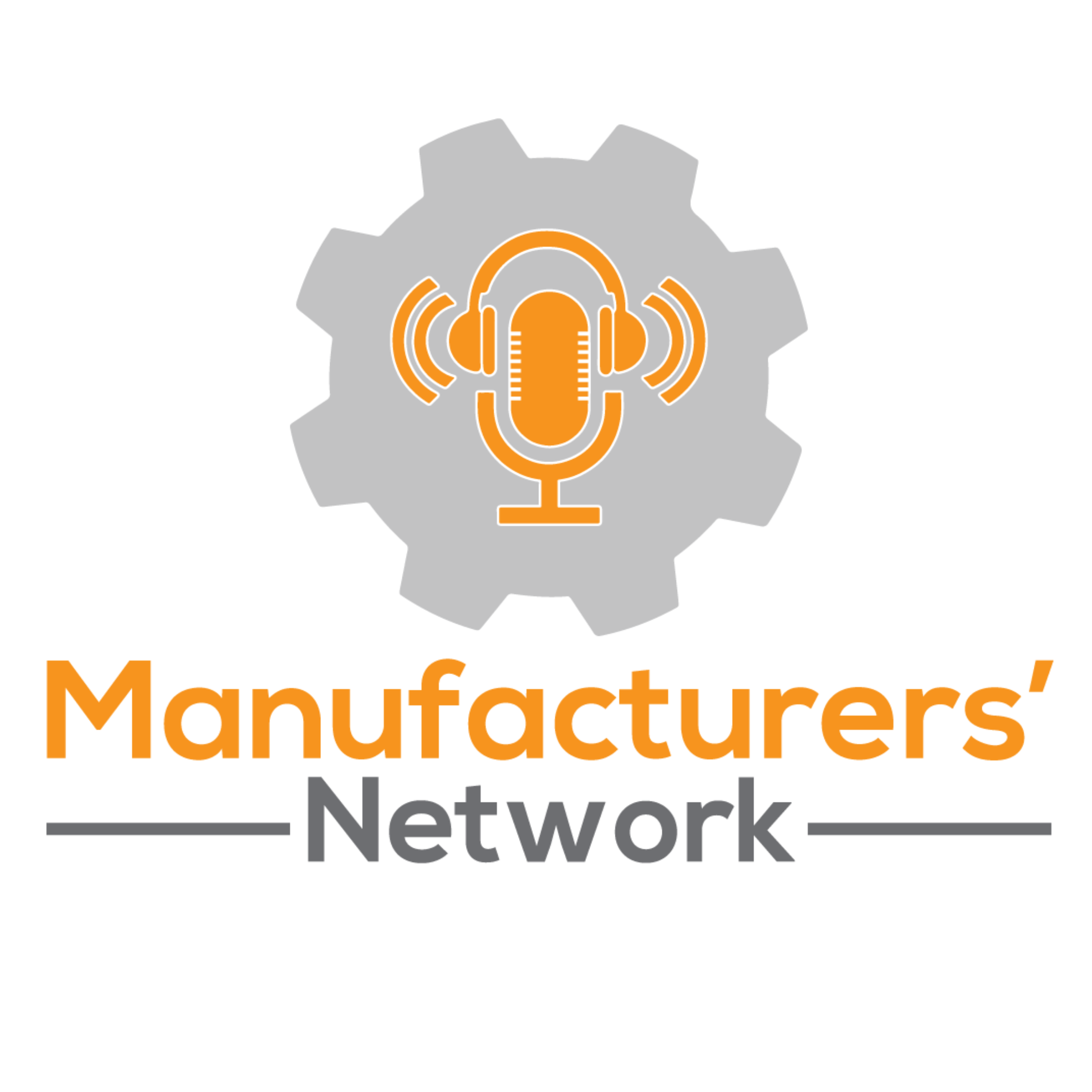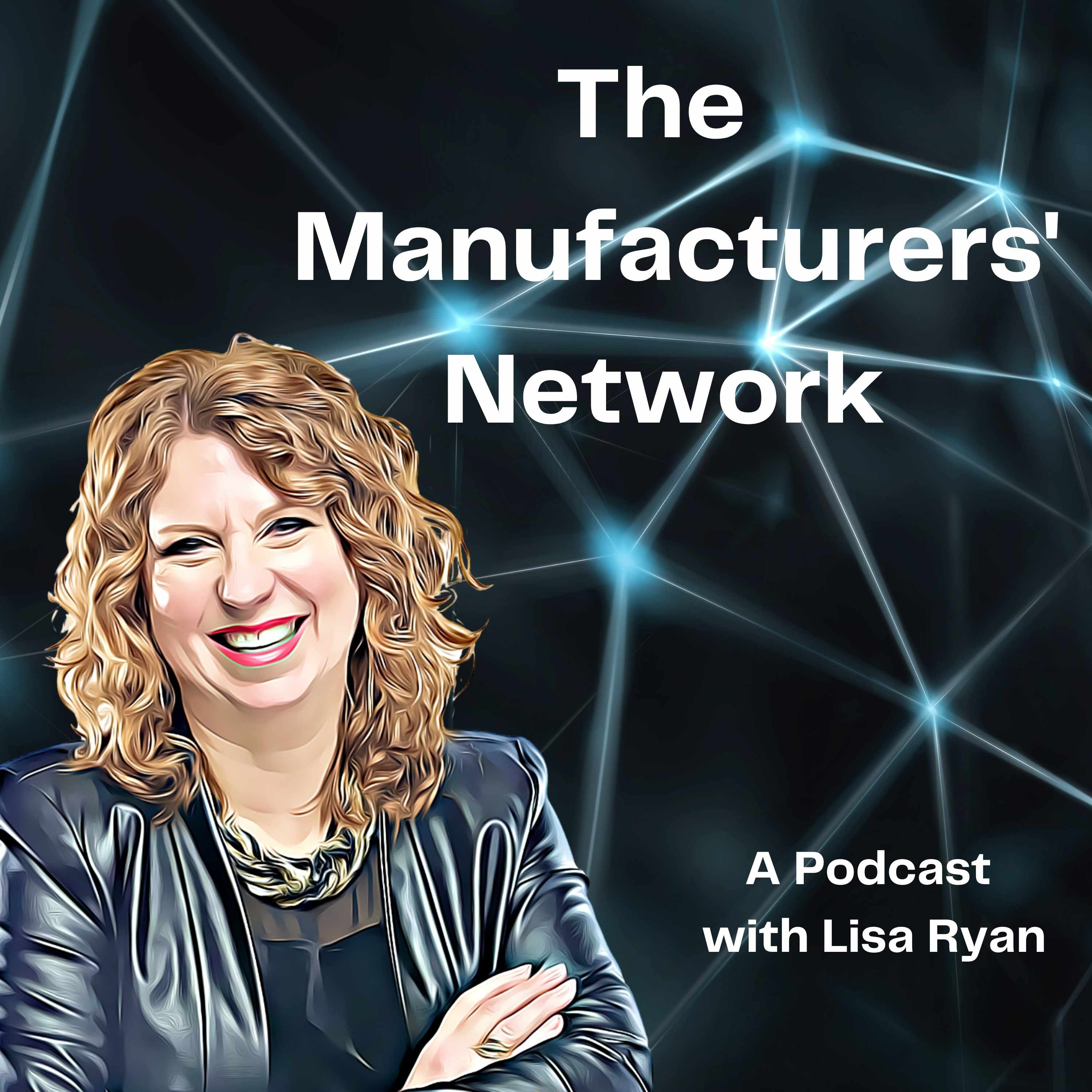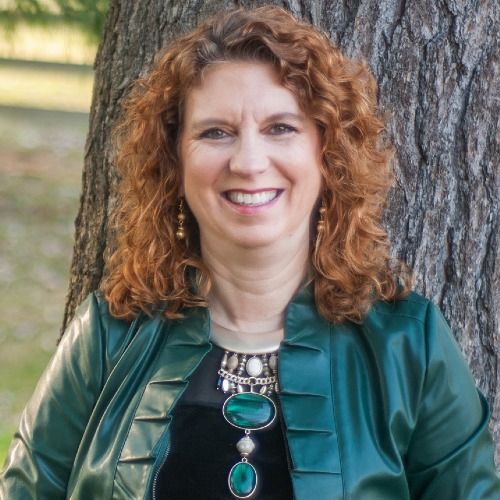Take Care of Your People and the Numbers Will Take Care of Themselves with John Hrdlick
Connect with John Hrdlick:
Email: John.Hrdlick@inxintl.com
LinkedIn: https://www.linkedin.com/in/john-hrdlick-ba953815/
Lisa Ryan: Hey, it's Lisa Ryan, and welcome to the Manufacturers' Network podcast. I'm excited to introduce our guest today, John Hrdlick. John is President and CEO of INX International Ink company. He spent most of his career in the industry at INX during his 44 years with the company.
He's worked in the production lab and text service, eventually landing. Operations Management around 1994 as a VP in 2011, he became a senior CIO, and then President. He added CEO in 2019. He enjoys managing the employees towards their goals and challenges in all of his roles. He's also an active member and participant on NAPIM boards and the IMDPA associations. John, Welcome to the show.
John Hrdlick: Hi, Lisa. I'm delighted to be here. Always a pleasure talking to you.
Lisa Ryan: Share with us what led you into INX, and share with us that journey of what got you to where you are.
John Hrdlick: Well, it's a journey that most people don't see these days. I came out of high school; there were other opportunities. I did start college after high school, and at the time, due to the cost and my maturity level, I didn't last very long. And I left with the idea that I'd get my act together, I get some money in the bank, and then go back to school. So that led me to a shift position in a factory. I was laid off, and a friend of mine got me into the business where he worked.
I was a production worker. That was a different company. I stayed there for three years and then went to INX to make more money because I got married. So I've been very fortunate to work for a company like INX, and opportunities kept coming my way. Every chance I had to move up or take on a different role, I took it, and it eventually took me to where I am today.
Everyone has a mentor, and I was lucky to have Rick Leaneti. He's my mentor. He was our President for 19 years, so he brought me up to the organization, which helped me understand our company's culture. It took me all over the world. I've seen most of our employees. I think most of our facilities and that also includes seeing customers all over the world. So even though I had mainly operational positions. I was still involved with sales and people and to be successful. I focused on that taking care of our people and taking care of our customers.
Lisa Ryan: So when you said that everyone in the company had a mentor expand a little bit more about that. What did that program look like, and how did that what levels do people get mentors. How did that process work?
John Hrdlick: Well, at the time, we didn't have a program. Individuals at INX would take people under their wings and help them along. I worked for Rick for ten years. Then I left and came back about five years later and worked for him again. I moved up to our corporate office, and there was probably a period of five or six years where I didn't work directly for Rick, but he was always there.
When I became CEO, he and I worked together every day. Even when I didn't realize he was mentoring me, he taught me and helped me and the ability to do what I do today; it wasn't an organized program. It was just someone who saw something in me and took me under his wing, and you see that all of our company.
Lisa Ryan: Starting on the production floor and then ending up as President, you're right. It's not a story that you hear every day. So, is that one of the things that you attribute to success is the fact that they groom people within the company versus
John Hrdlick: Least I would say there's a good mix. But what he has done over the years is they do nurture their employees. INX is a great company, and people tend to stay and make a full career out of our company. If you look at our average tenure, our employees were with us for 22 years on average. That has gone down in recent years for two reasons. Number one, our business is growing, so we're adding employees, but also because of the baby boomer effect, we're seeing a lot more retirements now. It's not uncommon to see people at INX with 50 years or more of experience, in their 40s, like me, 30s 25.
Every month, I fill out anniversary cards for each employee. In North America, South America, and Europe and it's one of their milestone years, whether it's 5, 10, 15, and so on. I send them a handwritten card, and that resonates with employees. It fits our culture of having open-door policies. Anybody can call me up or send me an email. Sometimes that creates a lot of extra work. Still, anyone who works at INX knows they can connect to senior management at any given time. That is very important and the opportunities they see to move up in the company. So it's an excellent all-round company.
Lisa Ryan: How many employees, approximately, do you have?
John Hrdlick: Overall, in our part of the company, we have roughly 1300 employees.
Lisa Ryan: So 1300 employees and regularly, you are sending out handwritten cards acknowledging those employees. Did I hear you correctly?
John Hrdlick: Yes, but that's for milestone anniversaries only. Suppose I had to do that every year for every employee.
Lisa Ryan: Right. You'd never be enough time.
John Hrdlick: On average, it's probably 12 to 15 cards a month to fill out.
Lisa Ryan: Okay, that's such an important point because that 12 to 15 cards, which most people don't even write one or two and a month, but it makes such a colossal difference takes minimal time. So what would you say you invest an hour, a couple of hours?
John Hrdlick: I would say two hours. I try not to write the same thing. And every card - and many of the employees I know. So I can add something that I know about them. So roughly two hours; I break it up, so I don't do every card in one sitting before my writing gets terrible or unreadable. So I try to take my time and break it up throughout the month.
Lisa Ryan: I've been on the receiving end of a note for a handwritten note from a CEO or CEO. When I was in the welding industry, Bud Kailash was at the top of the organization as Chairman CEO. When I had a good month, Bud would write on my Commission statement, "Congratulations. Lisa. Good month." It means the world when somebody takes the time out to do that. So I want to commend you for doing that. To the people who are listening, these little personalizations can make such a huge difference to your employees.
Speaking of that culture, which obviously, you must have a pretty terrific culture because of the tenure you have there besides the handwritten notes. What are some of the other things that are going well?
John Hrdlick: There's a lot of things we're doing well. But if I look at the top of the list, I have to say I can't talk about this without mentioning our response to covid. We're very proud of our employees. The last year, every directive we sent out, every update letter we've sent, everything we've asked our employees to do, they've responded. We're in an essential company, so we never stopped manufacturing. Our corporate office moved to their homes to work within three days of covert starting, which's roughly 80 people. To repeat the cooperation and attitude from our employees to keep everything running during this time is very commendable we 86% of our products find their way onto food packaging. That food packaging and beverage packaging ends up in the grocery stores, and that's what made us essential. We were part of the supply chain that get food and beverages in the stores for people who couldn't go out to restaurants and things like that anymore. We reminded our employees of their part in that process, and we made sure we were communicating every month with them. So they were up to date on everything we were doing.
Lisa Ryan: Wow. What are some of the other things that you or your leadership team do to take care of your employees to connect with them?
John Hrdlick: Well, we work in a very competitive industry, and to stay profitable, reasonably profitable, and viable, we have to manage our costs very well. So many years ago, we instituted a program that thinks it's TPM - total productive maintenance. We didn't come up with it. It's based on a Japanese model. But the best way I can describe TPM is it's lean on steroids. It's to get the involvement of the employees' management needs to go out on the shop floor, talk to the employees. Ask them what's working, what's not working. What did they need from us to help them and whatever we do to improve our production floors' efficiencies, the employees are directly involved.
So that helps us involve them in the entire process, but they get to know management. The employees see me walk around. They see our CEO walk around in our various division vice presidents, and you get that one on one relationship with employees. We're one of them. We're coming to them for help to make us more efficient. That has helped us over the years to mitigate our manufacturing costs increase every year. When we budget, we target zero budgeting for our operations. With our business growth, we strive to, year to year, keep our costs reasonably flat as much as possible.
Lisa Ryan: So it sounds like you've created a safe environment for employees to get to know you, to feel valued to be, to feel heard, to feel that their input is also appreciated. Do you have specific examples of an idea that maybe came from the floor that you were able to implement that made a significant difference in the company recently?
John Hrdlick: Yes. There are so many. Some of them have minor impacts, but they all add up. Others can go well into six figures in savings, but they're all related to the process itself. We recently had a significant improvement in our freight costs in 2020. Simply by our logistics team taking a harder look at the areas in our freight costs that we weren't managing well, putting out monthly metrics, and then working with the plants on how they could improve those metrics. We worked with our freight vendors on how we could improve with them as well. That was a significant cost saving in 2020. At some point, that team has to present their project to management, giving them recognition. It involves management asking them questions and giving them the proper pat on the back for what they've done. Whether it's small savings or considerable savings, they're putting their effort into helping us be better, and we show them a lot of gratitude for that.
Lisa Ryan: And for the people who are listening to this, who may be afraid to ask employees what they want because they think they're going to come up with some off the wall: I want $20 more an hour and six months vacation. So when you take the time to ask your employees sincerely, what have you found in the real world that happens?
John Hrdlick: Well, when we're walking around the plants. We call it the Gemba. We talk to the employees and ask them how they're doing and what would make their job easier - things of that nature. It's a casual conversation. And generally, when I'm part of that, you can get 1, 2, 3 ideas that will take back to the local management team, and they have to act on them within a certain amount of time and either accept them as valid projects or reveal that is could be rejected.
Sure, as there's a little bit more to the story. But no matter if we accept or reject an idea, the employee is talked to about it. And if we reject an idea, their manager explains instead of not saying anything, so that helps. And of course, we have suggestion boxes, and we try to get a certain number of suggestions every month from every facility. There's always encouragement for our employees to put something in the box. So when you do something like that, you can get some off the wall ideas. But again, we address every one of them. None of them had been too terrible, but some that aren't realistic, and we explained that to the employees.
Lisa Ryan: Right. So what are some of the things that are keeping you up at night?
John Hrdlick: Well, go back to covid, we've been running. We're essential, and we've been successful, but we still have cases we've had cases. Luckily, we haven't had to shut down our facilities in any way. Still, I get worried about that; now and then, you get a phone call in the middle of the night. We run 24/7, 24/5, so those phone calls can come, and sometimes it involves me being called, So anytime I hear the phone ring in the middle of the night, it's a problem at a facility or Japan, but that worries me. But again, our employees have been very resilient and cooperative. Other things that wake me up at night or keep me up. I would say the last few years. There have been significant problems with freight carriers, the service level, and that service's cost. They're short drivers. The tanker trucks are in short supply with qualified drivers. So everybody in manufacturing is probably dealing with this problem in one way, shape, or form. But when we can't get our product to a customer or can't get our raw materials to our plan because of transportation problems, we can quickly create a massive problem with our supply chain.
The other thing that can keep me up at night is we're very focused on safety had our company, and from time to time, there might be an accident in a plant and some of our plants. The nature of the product they produce can be more dangerous than others, but I never liked to get the phone call that there was an employee accident or a product spill somewhere. We're concerned about the welfare of our employees. And then, when you go beyond that, it can have a broader impact. So those things cause me to either be woken up in the night or sometimes stay on my mind.
Lisa Ryan: So, from a networking standpoint, if you were to connect with other manufacturing colleagues. What are some of the things you would like to learn from them, and in turn, what is some of the expertise or strategies that you would be willing to share with other manufacturers?
John Hrdlick: Well, we can always use help, and we always look for help dealing with the job openings we have in manufacturing, and I think everyone's been dealing with this trying to entice younger people to get into our industry and work in manufacturing. We've tried many different things, and we could probably share some of those with other people, but we're always looking for new ways to draw people to or would be very beneficial to me and the rest of us. That's very important to us, and also the area of freight again. We're doing something different with our freight management system. Still, I would like to hear what other companies are doing to deal with the challenges out there because it impacts manufacturing, like filling open positions. So those two areas are areas where we could get help from other manufacturers.
We could also share what we've done; maybe that could go both ways. Areas were where I think we could help if anyone is still trying to get their arms around managing through covid, I think what we've done as a company wasn't rocket science, but it's been very successful. Our TPM program would help other manufacturers, even if they only use a portion of it. As I said before, it involves the employees, and anything you can do to include employees will eventually improve your operating efficiencies. So I think that those areas we could help, but other people could help us.
Lisa Ryan: Terrific. Well, John, if you were to wrap it up in a nice little bow with your best tip for somebody listening today to improve their workplace culture like you've done so well over things. What would that be?
John Hrdlick: Keep it simple. It's not all about the numbers. The numbers are significant. But if you take care of your people and take care of your customers, treat them as human beings, and the result is the numbers will take care of themselves.
Lisa Ryan: John, I want to thank you so much for being on the show today. It's been an absolute pleasure having a conversation with you.
John Hrdlick: Oh, thank you very much.
Lisa Ryan: I am Lisa Ryan, and this is the manufacturer's network. See you next time.


